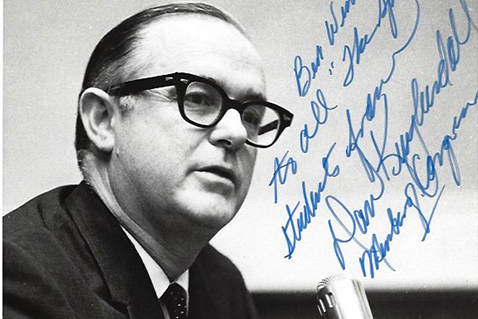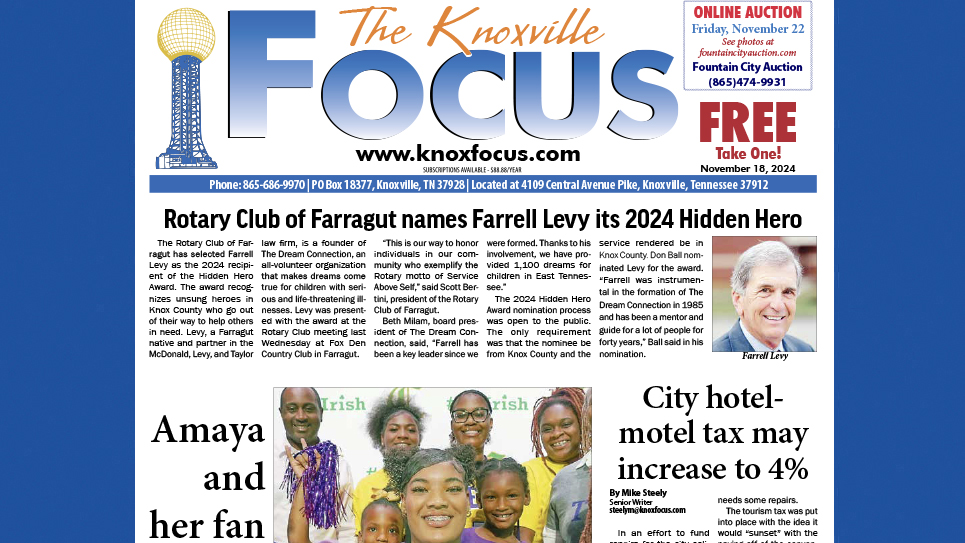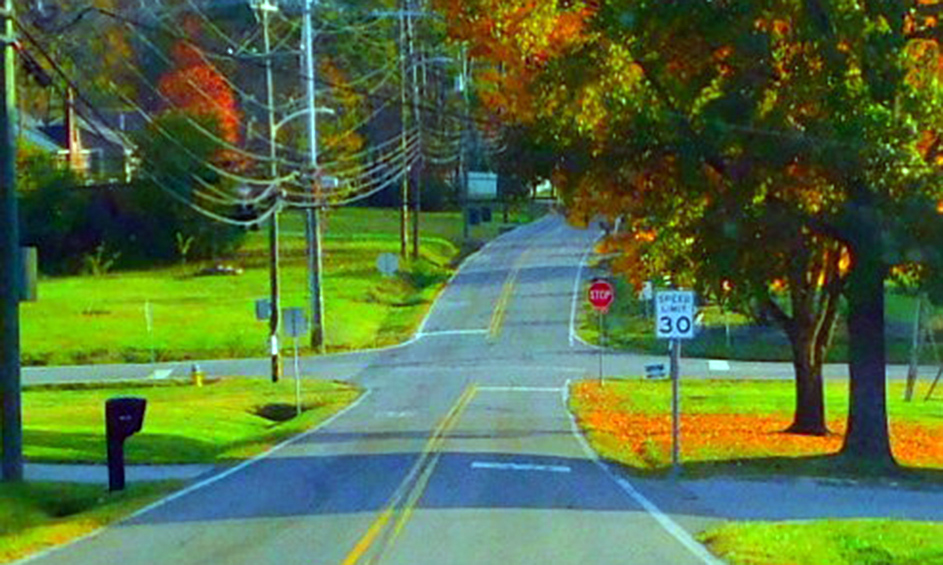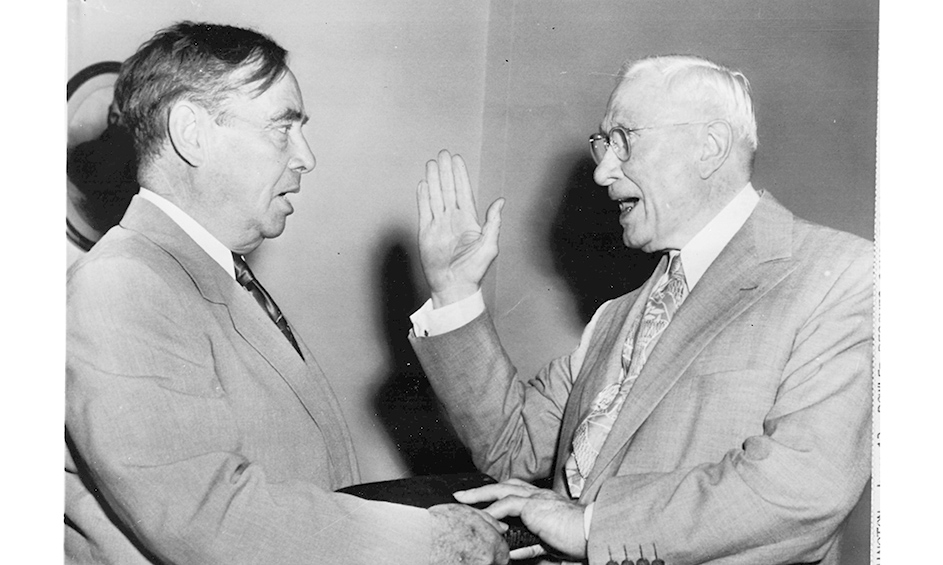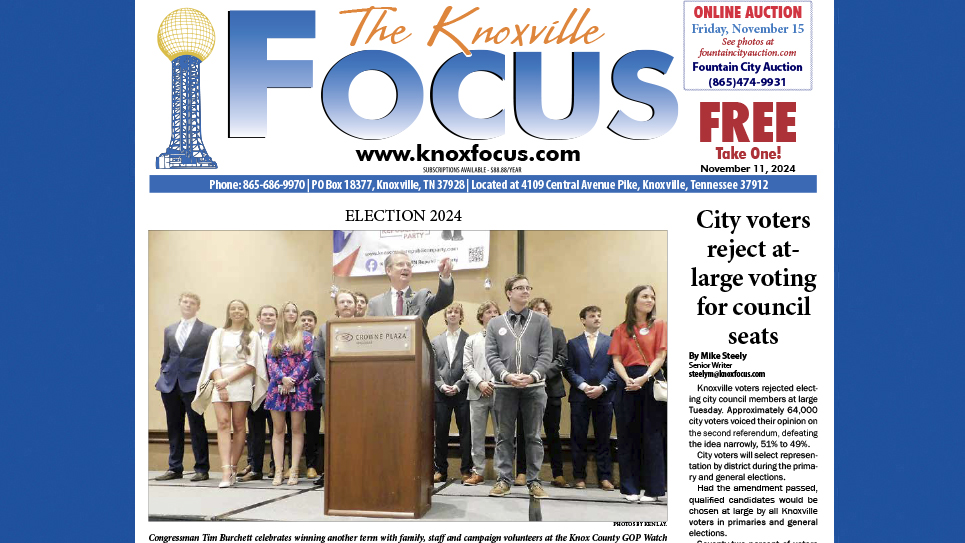By Ray Hill
Both of Tennessee’s seats in the United States Senate were up for election in 1964. Oddly, that has been the case every thirty years since 1934. Tennesseans went to the polls to elect both United States senators in 1934, 1964, and 1994. The first popular election for a seat in the United States Senate occurred in 1916. That year Tennessee Republicans nominated the man who was likely their strongest candidate, former Governor Ben W. Hooper. Republicans saw another opportunity to try and wrest a Senate seat away from the Democrats in 1948, which most observers thought was going to be a terrific year for the GOP. Former Congressman Carroll Reece was the Republican nominee for the U.S. Senate in 1948 and won only a third of the vote.
Tennessee Republicans were newly energized by continual success in presidential elections as Dwight D. Eisenhower carried the Volunteer State in 1952 and 1956. Richard Nixon won a decisive victory over John F. Kennedy in protestant Tennessee. Bill Brock had won a seat in the House of Representatives by beating the Democratic nominee in 1962. Republican Bob James had fallen short by just over 1,200 votes of beating veteran congressman Cliff Davis that same year in Shelby County.
Emboldened by their success, Tennessee Republicans determined to offer serious candidates for both of the Senate seats up for election in 1964. Senator Albert Gore Sr., Tennessee’s “Old Gray Fox,” was running for his third consecutive term in the United States Senate. The other seat was up for election due to the death of Estes Kefauver, who had died suddenly in August of 1963. Governor Frank Clement had appointed Herbert S. “Hub” Walters to fill the vacancy until the next regular election. “Hub” Walters was past seventy, had suffered a bout with throat cancer and had long been active in Tennessee’s Democratic Party. Walters was not a candidate to succeed himself and virtually nobody thought he would be; instead, the man who had appointed him was off and running for the United States Senate, along with Congressman Ross Bass, for the Democratic nomination.
Dan Kuykendall, a native of Texas who had moved to Memphis to take a regional job with Proctor & Gamble a decade earlier, had been methodically traveling across the state, meeting Republicans in cities, towns and hamlets in Tennessee. Kuykendall (pronounced Kirk-in-dahl) was campaigning to oppose Senator Gore until he made his announcement official in April of 1964. The GOP candidate for the remainder of the late Senator Kefauver’s term was Howard Baker Jr. Baker’s father had been the congressman from Tennessee’s Second Congressional District from 1951 until his death in January of 1963. Baker spurned the opportunity to run in the special election that year to fill the vacancy, which was won by his stepmother, Irene Baker. Mrs. Baker chose not to be a candidate for the full term in 1964, which sparked a hard-fought primary fight between Knoxville Mayor John J. Duncan and Judge Frank Qualls.
Another source of optimism for Tennessee Republicans was likely GOP presidential nominee Barry Goldwater, who was polling ahead of President Lyndon Johnson inside the Volunteer State. Bob James was running for Congress once again in Shelby County and even Tom Murray, who had been in Congress since 1942 and was the most conservative Democrat in Congress from Tennessee, had drawn a serious GOP opponent for the general election. That opponent deserves a mention. Julius Hurst of McNairy County was remembered as “a force to be reckoned with” inside his home area. Hurst served as superintendent of schools for thirteen years until finally losing an election in 1971. Julius Hurst went on to serve on the McNairy County Commission, as well as the Selmer City Board as an alderman. Hurst gave Tom Murray a real race and quite nearly won a seat in Congress two years later when a Democrat named Ray Blanton just barely eked past him in the general election. Julius Hurst also served a term as chairman of Tennessee’s Republican Party.
Hurst died at age sixty-four in 1983 and was remembered by one local political observer who said, “He wouldn’t go around the corner. He’d tell you to your face.” Selmer Mayor Billy Joe Glover recalled Julius Hurst, saying, “I don’t think I’ve ever dealt with a more honest and sincere person.” The hallmark honesty and sincerity of Julius Hurst’s character made him “very formidable as an opponent” Glover thought. It also hurt him as blunt honesty isn’t always appreciated by those on the receiving end. Hurst had lost the superintendent’s seat by a mere 41 votes likely because of his direct and forthright stand in favor of school system consolidation.
Kuykendall was unopposed in the Republican primary while Howard Baker swept past two minor candidates. With the fall campaign in full swing in September of 1964, Dan Kuykendall won the endorsement of the Chattanooga News-Free Press. That newspaper was as conservative as Kuykendall, at least in its editorials. “After years in which Senator Albert Gore has badly misrepresented Tennessee with his consistent record of votes on the left wing side of the street,” the editorial thundered, “Tennesseans now may rejoice that they have a choice, an alternative.” The News-Free Press described Dan Kuykendall as “a constitutional conservative in philosophy, a man of excellent character and high motivation, an unusually intelligent and alert gentleman.” The editorial concluded, “Tennesseans could be proud to have him represent them in the Senate.”
Kuykendall launched his fall campaign for the general election in the very heart of enemy territory, choosing to open in Covington, Tennessee in Tipton County. Kuykendall minced no words, charging Senator Gore had “served the appeasers of Communism” while serving on the Senate’s Foreign Relations Committee.
Speaking from the steps of the courthouse with a gigantic photo of himself looming nearby, the candidate was introduced by another rising star of Tennessee’s Republican Party, Congressman Bill Brock of Chattanooga. “One hundred and twenty-eight years ago,” Kuykendall cried, “my ancestors left this county to join Sam Houston in Texas in a fight for freedom and beginning here today I ask you to join me in another fight for freedom.”
Kuykendall stirred a charge against Senator Gore that I can recall now quite well. It was a common complaint and one my grandfather believed to his core. That accusation was Gore was far more interested in foreign affairs and national politics than in Tennessee and Tennesseans. Kuykendall told his listeners one of the slogans of his campaign would be “let’s not bother Gore with Tennessee any more.” Kuykendall said Senator Gore was responsible for having supported “wasteful foreign spending” which the Republican candidate asserted had “contributed to poverty in Appalachia, has caused unemployment in the textile industry, and has caused a tremendous loss of income in the cattle industry.”
Worse still, Dan Kuykendall insisted, “Albert Gore’s unjustified attacks against the job building people throughout the country have kept industry out of Tennessee and kept Tennessee’s working men from getting the kind of jobs they deserve.” Among Gore’s other failings, at least according to Kuykendall, was the senator’s having “ignored the plight of the cotton farmers” in the Volunteer State, as well as his “total lack of interest in the tobacco industry.”
According to the Knoxville Journal, more than 10,000 people gathered to greet GOP presidential nominee Barry Goldwater when he made a stop at McGhee-Tyson Airport on September 16, 1964. Goldwater’s Knoxville visit followed an appearance in Memphis where Chief of Police J. C. McDonald said 80,000 people had heard the Arizona senator speak. The Kingsport News reported one of the “happiest men” in attendance at the Goldwater rally was GOP senatorial candidate Dan Kuykendall. Goldwater had noted Senator Albert Gore had offered an amendment to the Medicare proposal pending in the Senate. Goldwater said Gore’s amendment was based on the same foundation as that of France, which the Arizona senator claimed was bankrupting the French people.
Years after the 1964 election, Howard Baker was candid in saying he knew the Republican ticket in Tennessee could not possibly carry the burden of Barry Goldwater’s pledge to sell the Tennessee Valley Authority. If any agency or entity in the State of Tennessee was close to being sacrosanct with the voters, it was the TVA. While Dan Kuykendall was highly conservative and an avid supporter of Barry Goldwater, the Memphian made it quite clear to Tennessee voters that he did not agree with the Arizonan at all about the Tennessee Valley Authority. Originally, Barry Goldwater had polled well ahead of Lyndon Johnson in Tennessee, but Tennesseans clearly disliked the idea of any president selling the TVA off to private power interests. Dan Kuykendall repeatedly stated his belief he didn’t care what anyone thought, Republican or Democrat; he supported leaving the TVA alone to do its work. Kuykendall also hit Senator Gore’s votes against LBJ’s Civil Right Act as well as the federal tax cut as having been motivated solely by political need. Dan Kuykendall insisted Gore was moving to the right to shore up his support inside Tennessee. For his part, Senator Gore largely ignored his Republican challenger, but let fly with eloquent attacks on GOP presidential nominee Barry Goldwater.
Barry Goldwater apparently understood his earlier promise to sell the TVA had done quite a lot of harm to voters in the Volunteer State. While campaigning in Memphis, the Arizona senator had retracted his pledge and had said, “I recognize the need for TVA and you know Howard Baker and Dan Kuykendall are going to see that nothing happens to it.”
The Arizona senator had managed to rile some members of his own party by not having mentioned other members of the GOP ticket during his stops in Memphis and Knoxville. Senator Goldwater never once called Howard Baker’s name, despite the fact it was Baker who introduced him to the thousands of people at the airport. Nor did Goldwater say anything about Dan Kuykendall when in Memphis, much less GOP congressional nominee Bob James. The Goldwater campaign kept its headquarters separate as well.
Some observers believed Kuykendall was quite likely to make a better showing in the general election against Albert Gore than Howard Baker would against Congressman Ross Bass. Bass had surprised nearly everyone with his smashing victory in the Democratic primary against Governor Frank Clement inside the Democratic primary. That victory made Bass the strong favorite over Baker in the general election.
Lyndon Johnson was one of the most adroit politicians ever to hold public office, although his presidency was troubled and overshadowed by the Vietnam War. Johnson made his own campaign stop in Tennessee and delighted Democrats when he said he certainly wouldn’t sell TVA while visiting Nashville.
Both Howard Baker and Dan Kuykendall constantly reiterated their support for the Tennessee Valley Authority on the campaign trail. Kuykendall stoutly maintained the Tennessee Valley Authority was the best-managed agency in the entire federal government. “In its long history,” Kuykendall reminded Tennesseans, “it has not once been touched by scandal.
“TVA was needed. It has done a good job. I think that TVA is going to find it necessary to expand,” Kuykendall said. “Our continuing industrial growth makes this expansion necessary and I have said time and again that in Tennessee we must expand our industry.
“I am a conservative, but I am not a roll-back-the-calendar man,” Kuykendall insisted. “I believe that for every man and for everything, the time to begin is now. This philosophy applies to all things we do or undertake. As for TVA, we have it, it has worked well and we need to improve it.”
As the general election approached, both Dan Kuykendall and Howard Baker picked up their frenetic pace in the first real effort made by Tennessee Republicans to win election to a seat in the United States Senate since 1948. Both men knew they faced long odds, but there was good reason to believe the prize was within their grasp.

